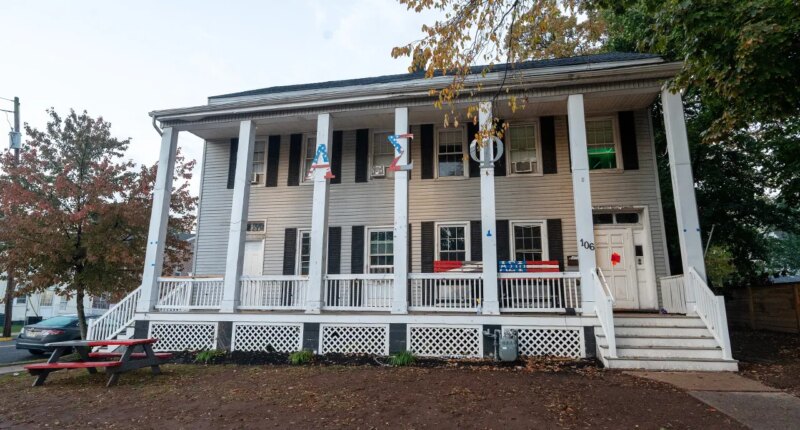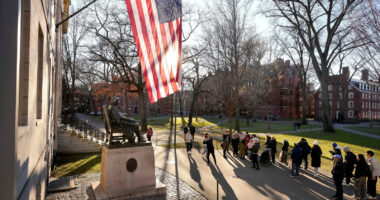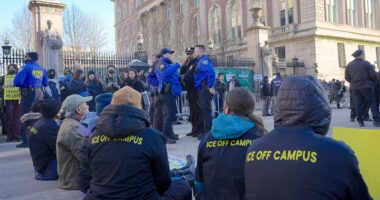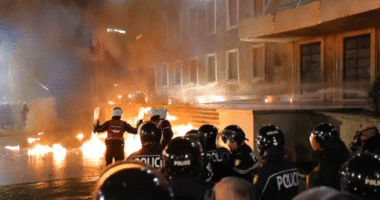Share this @internewscast.com
The tragic incident involving a New Jersey college student, reportedly electrocuted in what authorities suspect was a hazing incident, has reignited concerns over safety in off-campus housing at universities nationwide.
Earlier this month, a 19-year-old student from Rutgers University was critically injured after suffering an electrical shock at an off-campus house belonging to the Alpha Sigma Phi fraternity. According to reports from NJ.com, the incident took place during what is alleged to have been a hazing event. A second student sustained injuries while trying to rescue the victim from the electrical source, as recounted by a parent of one of the fraternity’s members.
In light of these allegations, the national body of Alpha Sigma Phi swiftly decided to permanently disband the Rutgers chapter, closing down its College Avenue residence.
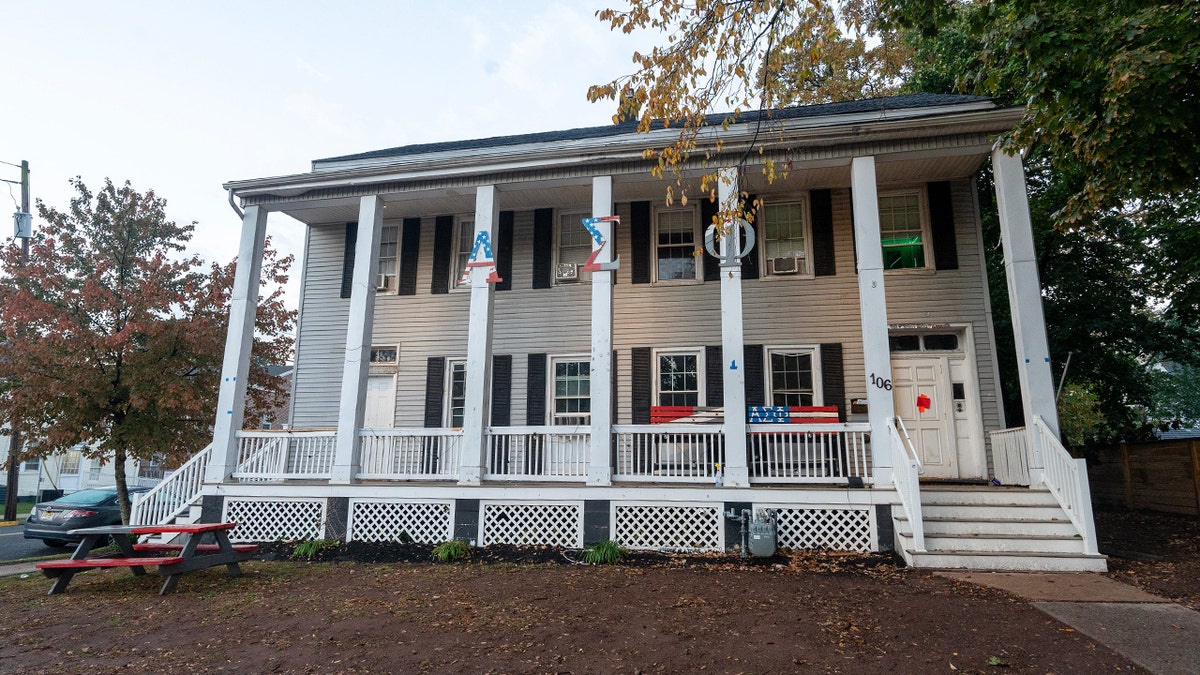
The incident occurred at the Alpha Sigma Phi fraternity house situated at 106 College Avenue, where the young student was seriously injured on October 15 in New Brunswick, New Jersey. This unfortunate event has brought to the fore the potential dangers associated with fraternity activities, particularly those involving hazing.
Gordy Heminger, President and CEO of Alpha Sigma Phi Fraternity, Inc., issued a statement to Fox News Digital, saying, “Our review revealed that the chapter breached several aspects of the Fraternity’s Health and Safety guidelines that night. We firmly believe that, absent the hazing activities, these injuries would not have happened. Consequently, the chapter has been closed following our investigation.”
Rutgers University has also taken action, placing the fraternity under a cease-and-desist order and subjecting it to organizational disciplinary probation as part of its own institutional review.
While investigators are still working to piece together the events that led to one student being hospitalized, questions surrounding the safety of off-campus Greek life housing – and the risks of potential hazing – have started to emerge.

A 19-year-old student was hospitalized in critical condition after being found unresponsive at an Alpha Sigma Phi chapter’s off-campus house at Rutgers University in New Brunswick, New Jersey on Wednesday, Oct. 15, 2025. (iStock)
“There is a feeling and an expectation from parents that the university has greater control over these off-campus, privately owned housing options,” David Stollman, president of Campuspeak, told Fox News Digital. “I think a constant expectation that parents have is that there’s greater control than the university may actually have.”
Currently, regulations involving a university’s liability for incidents that occur in off-campus student housing are left up to each individual organization, with some schools weighing the benefits – and risks – of providing oversight for the homes.
“Campus attorneys have different opinions,” Stollman said. “Some believe and direct their university to say it’s better that we know and we do all that we can to add a layer of protection. Others say if we add that layer of protection, the university is then responsible.”
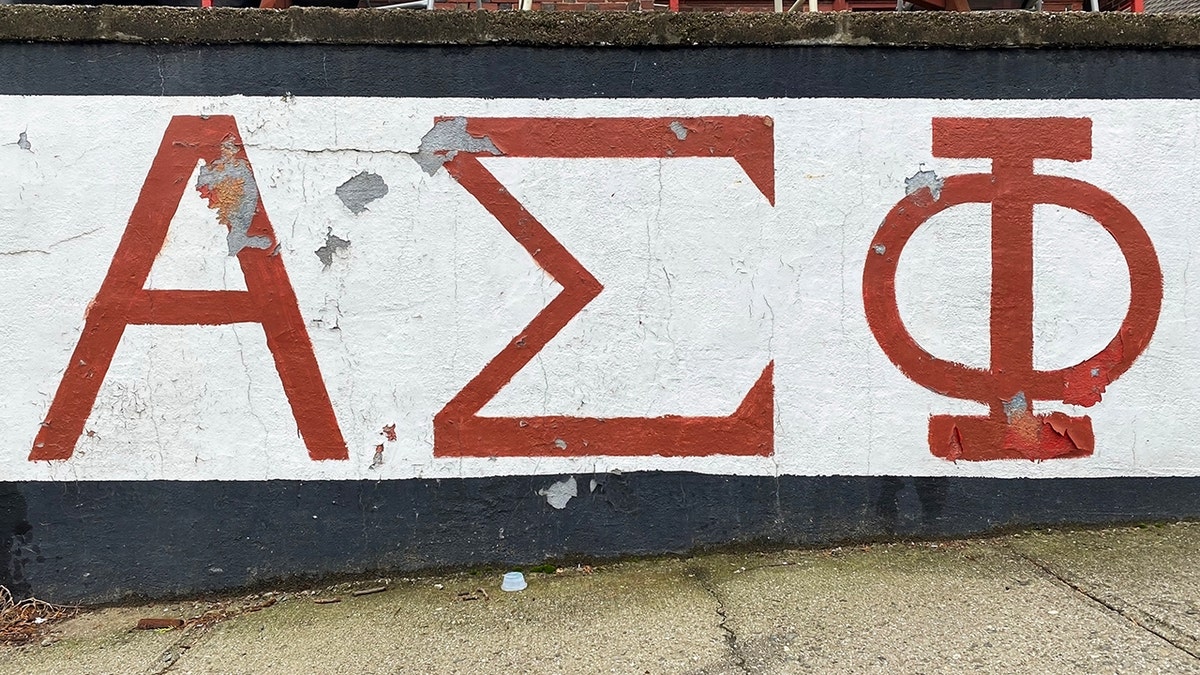
Alpha Sigma Phi’s Rutgers University chapter has been permanently banned as authorities work to determine the cause of the student’s injuries, according to officials. (iStock)
Within days of the alleged hazing incident, Alpha Sigma Phi’s chapter house in New Brunswick was declared uninhabitable after it was revealed that the property had a history of failed inspections and a $10,000 fine issued earlier this year, according to records obtained by Fox News Digital.
Inspection records dating back to 2014 show a string of code violations, with officials documenting numerous hazards – including structural neglect and fire safety issues – beginning in 2020.
In 2023, inspectors discovered missing carbon monoxide alarms, broken door hardware, damaged flooring and exterior garbage buildup. One year later, many of the violations were still present when officials returned to the home, resulting in a $10,000 fine.
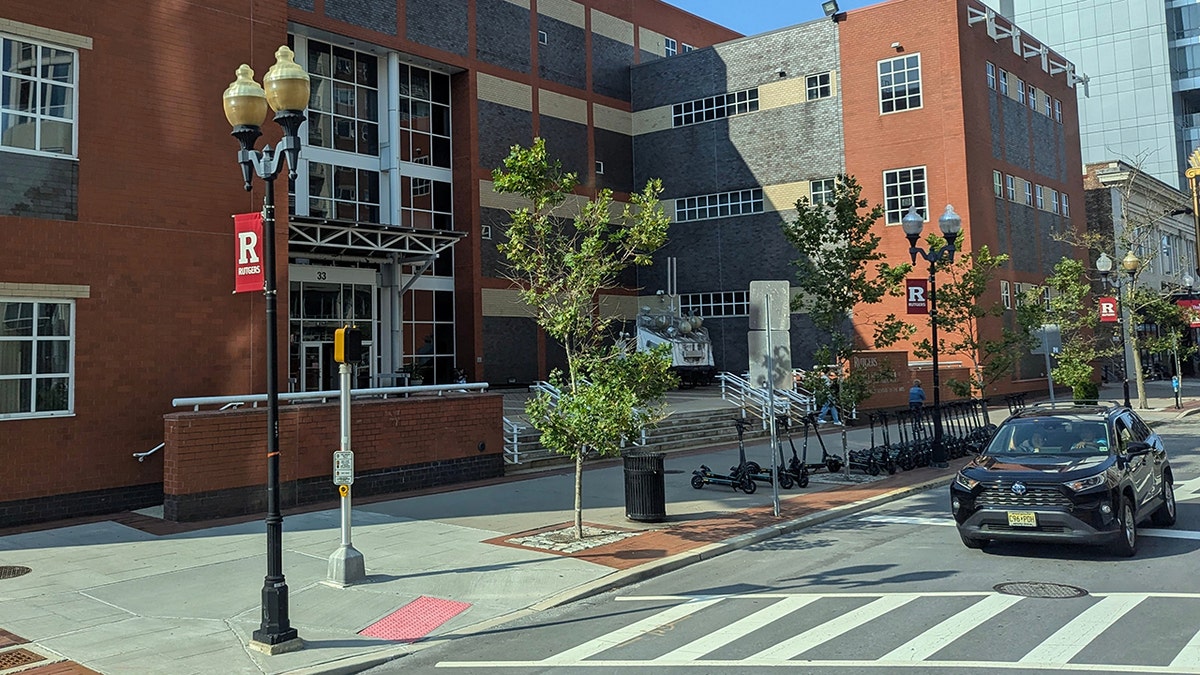
After a 19-year-old Rutgers University fraternity member was critically injured in an alleged hazing incident, experts are raising questions regarding liability for off-campus residences’ safety violations. (iStock)
Another inspection in May 2025 uncovered 50 reported problems, including open wiring, structural damage, blocked fire escapes and pest infestations, according to documents obtained by Fox News Digital.
Less than one month before the student was critically injured, the Department of Community Affairs confiscated the property’s certificate of inspection. Days later, a re-inspection report indicated the house had at least 19 remaining violations, including several life-safety issues involving broken carbon monoxide detectors and blocked exits.
The home is owned by the Alpha Sigma Phi Fraternity and managed by the organization’s national housing arm, CLVEN, according to property records.
In a statement to Fox News Digital, Heminger insisted that any maintenance issues submitted to CLVEN were resolved in a timely manner, and “over 200 minutes of virtual housing meetings with undergraduates this academic year were reviewed, and there was never any mention of electrical/life safety issues in the house by any of the undergraduates.”
“Sadly, the undergraduates and – or – their guests committed a lot of documented damage to the chapter house,” Heminger said.
Additionally, Rutgers “has no involvement” in the oversight of the property, a university spokesperson said in a statement to Fox News Digital.
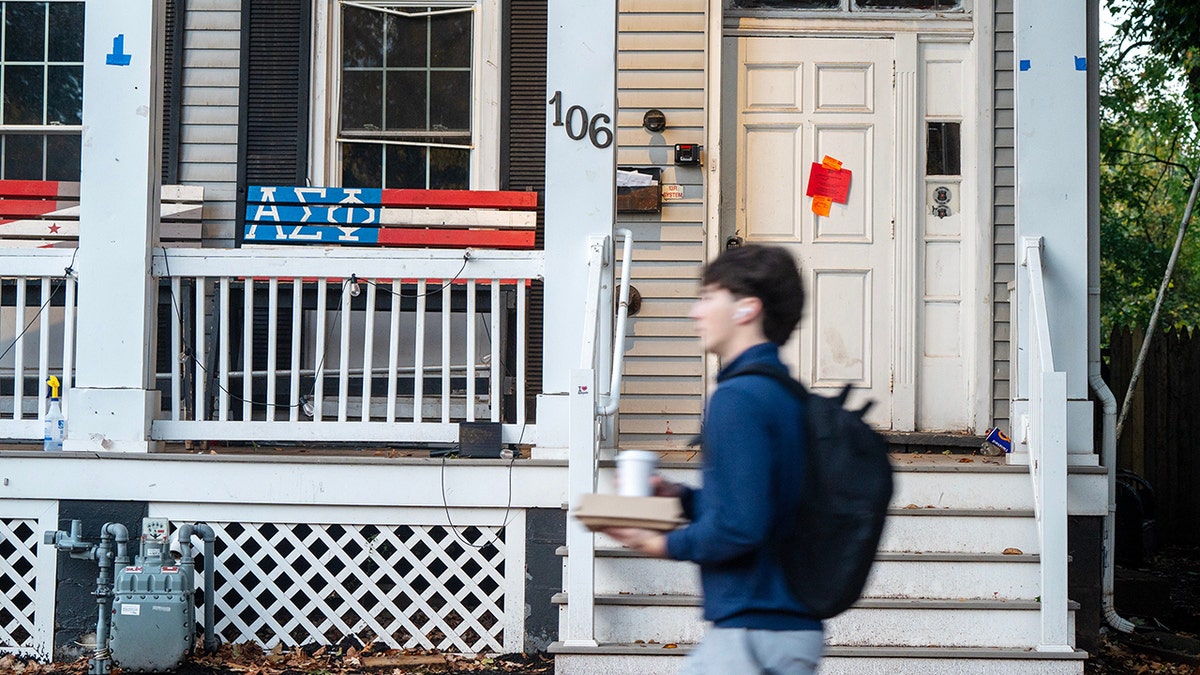
An unsafe structure notice hangs on the front door of the Alpha Sigma Phi fraternity house at 106 College Avenue, where a 19-year-old Rutgers University student was seriously injured on October 15, in New Brunswick, New Jersey, Wednesday, Oct. 22, 2025. (Tanya Breen/Asbury Park Press via USA Today)
According to Stollman, many off-campus Greek life homes are either managed by the local or national chapter, or rented from a third-party landlord – with many organizations preferring local alumni to universities when it comes to safety evaluations.
“There’s risk to the university if they go through and certify those houses,” Stollman told Fox News Digital. “Because if they certify something is safe and it’s not, then I as a parent would look to them and say, ‘Wait a minute, you told me this was safe.’”
However, Stollman insists that universities with such housing situations should provide increased transparency to parents regarding their involvement in ensuring the safety of students.
“It would be great if a parent can help their student shop for where they want to live off-campus by some of that transparency,” Stollman said. “[With] the university bringing in what violations the city has put forth, even if the university isn’t certifying that these violations are accurate or inaccurate.”
The Middlesex County Prosecutor’s Office is currently investigating to determine if criminal charges can be brought against any of the students found to be involved in the incident, according to Rutgers.
The victim is currently recovering from his injuries and is still receiving treatment, the Middlesex County Prosecutor’s Office confirmed to Fox News Digital.
As Greek life remains a solidified tradition throughout the country’s higher education system, Stollman implores families to do their research regarding their student’s off-campus housing options while prioritizing safety and transparency.
“Off-campus rental properties for students is a big business,” Stollman said.
“There are a lot of companies who have invested greatly in those big college towns, especially. [Families should] look at what these companies are putting forward in their leases, and what they’re putting forward in their protections of students. So it’s a tough situation, it’s really [about] what you can find out and how you can make decisions as early as possible.”
